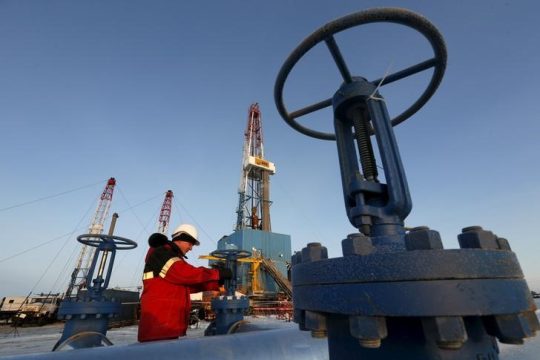
Oil prices inch lower from 2023 highs, OPEC+ cuts in focus
Oil prices fell slightly from their strongest levels for the year on Tuesday as markets waited on Russia and the OPEC+ to outline more production cuts, while focus also remained on more Chinese cues this week.
Oil had a strong run-up over the past week after Russia said that it had reached a deal with the Organization of Petroleum Exporting Countries (OPEC+) over more supply reductions, and that more details on the deal will be revealed this week.
Saudi Arabia- the leader of the production group- is also expected to extend an ongoing one million barrel per day cut until end-October, with the kingdom having signaled that it will keep production low to prop up global crude prices.
Brent oil futures fell 0.1% to $88.91 a barrel, while West Texas Intermediate crude futures fell 0.1% to $85.89 a barrel by 21:02 ET (01:02 GMT). Brent was near its highest level since late-January, while WTI traded close to levels last seen in November 2022.
“That there is still plenty of momentum so close to $90 a barrel may suggest we could see a strong push to break above which would represent a big shift in the market dynamic in quite a short period of time,” analysts at Oanda wrote in a note.
Tighter supplies help offset economic uncertainty
The prospect of tighter supplies helped oil bulls largely look past a batch of mixed economic readings from the world’s largest oil consumers. Recent data from the U.S. indicated some cooling in the country’s labor market and economic growth, while U.S. fuel demand also came into question as the travel-heavy summer season comes to an end.
Cooling U.S. economic activity ramped up hopes that the Federal Reserve will have limited headroom to keep raising interest rates, easing some concerns that high rates will crimp crude demand this year.
But the dollar remained strong, hovering near three-month highs on Tuesday as markets awaited a string of Fed speakers this week. While the bank is widely expected to keep rates on hold in September, it is also expected to maintain rates at over 20-year highs for longer.
In China, government and private surveys offered mixed signals on manufacturing activity, as the world’s largest oil consumer struggles to shore up a post-COVID economic recovery.
But markets are hoping that Beijing will release more stimulus measures in the coming weeks to further support growth. Focus this week is also on Chinese trade data to gauge just how well crude demand is holding up in the country.
Contact Us
Office Address: Hamchako, Anjouan, Union of Comoros





